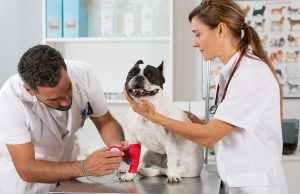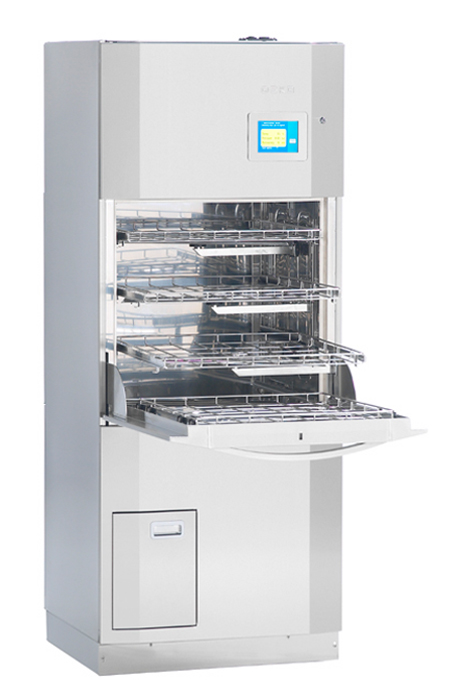Have you recently purchased a new puppy or kitten, or are you in the process of buying one? One of the most important tasks you will need to do in preparation is to find yourself a good vet. While nobody wants to think about the possibility of their beloved pet becoming ill, that is always a possibility. Consequently, you want to know that the medical professional you are entrusting your beloved pet to is competent and proficient. This article is designed to provide you with a list of questions or things to consider when choosing the best vet for you and your pet.
Personal Recommendation
 Nothing beats the personal recommendation of a friend or neighbour whose opinion you trust. If someone you know has pets ask them which vet they currently use and if they would be happy to recommend them. Very few people will recommend any type of service or provider that they are unhappy with. Likewise, people will not put their name to recommending a company if they are not completely delighted with the quality of service they have received. Even if you don’t know anyone personally, join a local Facebook group and ask the question in there. People who have pets are usually passionate about their animals and will be more than happy to provide recommendations.
Nothing beats the personal recommendation of a friend or neighbour whose opinion you trust. If someone you know has pets ask them which vet they currently use and if they would be happy to recommend them. Very few people will recommend any type of service or provider that they are unhappy with. Likewise, people will not put their name to recommending a company if they are not completely delighted with the quality of service they have received. Even if you don’t know anyone personally, join a local Facebook group and ask the question in there. People who have pets are usually passionate about their animals and will be more than happy to provide recommendations.
Visit The Veterinary Practice
 Before making a final decision, our advice would always be to personally visit any Veterinary Practice you are considering to see for yourself what the facilities are like. Another benefit of this approach is that it gives you the opportunity to ask a few questions. For instance, you could speak to people waiting to be seen and ask what time their original appointment was. If you find that most people have been waiting 30 or 40 minutes for their appointment, this could be viewed as either a red flag or as a good thing at the vet is taking their time with each pet; only you can decide that.
Before making a final decision, our advice would always be to personally visit any Veterinary Practice you are considering to see for yourself what the facilities are like. Another benefit of this approach is that it gives you the opportunity to ask a few questions. For instance, you could speak to people waiting to be seen and ask what time their original appointment was. If you find that most people have been waiting 30 or 40 minutes for their appointment, this could be viewed as either a red flag or as a good thing at the vet is taking their time with each pet; only you can decide that.
Is the practice clean and well-presented? Are the receptionists polite and welcoming? Remember that in most situations, your initial point of contact will be with the receptionists, so you want to be confident in dealing with those people. When visiting, prepare a list of questions to ask so you don’t forget. This could be anything from opening times to recommended pet insurance to what the process is for out-of-hours emergencies. This information is critical and is something you want and need to know ahead of time rather than when a serious medical problem arises on a Saturday night.
Hygiene and Cleanliness
Hygiene and disinfection are, or at least should be, a critical component of every veterinary practice, and yet this is something that most customers do not really think about, trusting that the veterinary practice is doing everything properly. When you are visiting the veterinary practice, an excellent question to ask is how they clean and sterilise their medical equipment. The old-fashioned method, which is not particularly efficient and is very time-consuming, involved washing the equipment by hand. This procedure brings with it two inherent risks, human error in terms of the cleaning process and the very real possibility that someone could cut themselves, thereby exposing themselves to a risk of infection while cleaning the instruments.
The more modern and infinitely safer way is to use a washer disinfector. Washer disinfectors are specialist pieces of equipment which provide a reliable, effective and efficient cleaning process for veterinary practices across the United Kingdom.
Dekomed is one of the pioneers of this industry, and we are trusted by hundreds of veterinary practices across the country to deliver proven sterilisation processes for medical instruments. Asking what type of sterilisation processes a veterinary practice uses is not only an interesting and informative method of analysing a potential vet practice, but it is also likely to demonstrate the knowledge and expertise that the practice receptionist has as very few, if indeed anyone else, will ask this type of question.
Location
Although we do not like to think about our pet getting ill, it is in times of emergency that seemingly unimportant things come into full focus. One of these is the location of your veterinary practice. Although you might find a perfect vet with excellent staff and outstanding customer service, this may not be a good choice if they are not particularly local to your home address. The reason for this statement is that if an emergency should take place, time will be of the essence, and the time it takes to get your pet to the vet could be the difference between life and death. Are there public transport links in case your partner has taken the car for the day, or even if you have a car, are there adequate parking facilities for you when you get there? As mentioned before, these issues only tend to raise their head when disaster strikes, so it is important to think about them ahead of time rather than when you are in the centre of the storm.
 Specialisms
Specialisms
Whilst there is a common misconception that all vets treat all animals, this is not strictly true. Some vets, for instance, specialise in farm animals, others may have extensive knowledge of reptiles, for instance, and others may even focus on bulldogs and the specific issues that the breed faces. This is why it is important to research and find the right vet for your specific needs rather than just choosing the nearest vet to where you live.
Choosing a pet is a life-changing decision for you and your family, but likewise, choosing the right vet is equally important. Take your time to conduct your due diligence, and always remember to put your pet front and centre of every decision.

